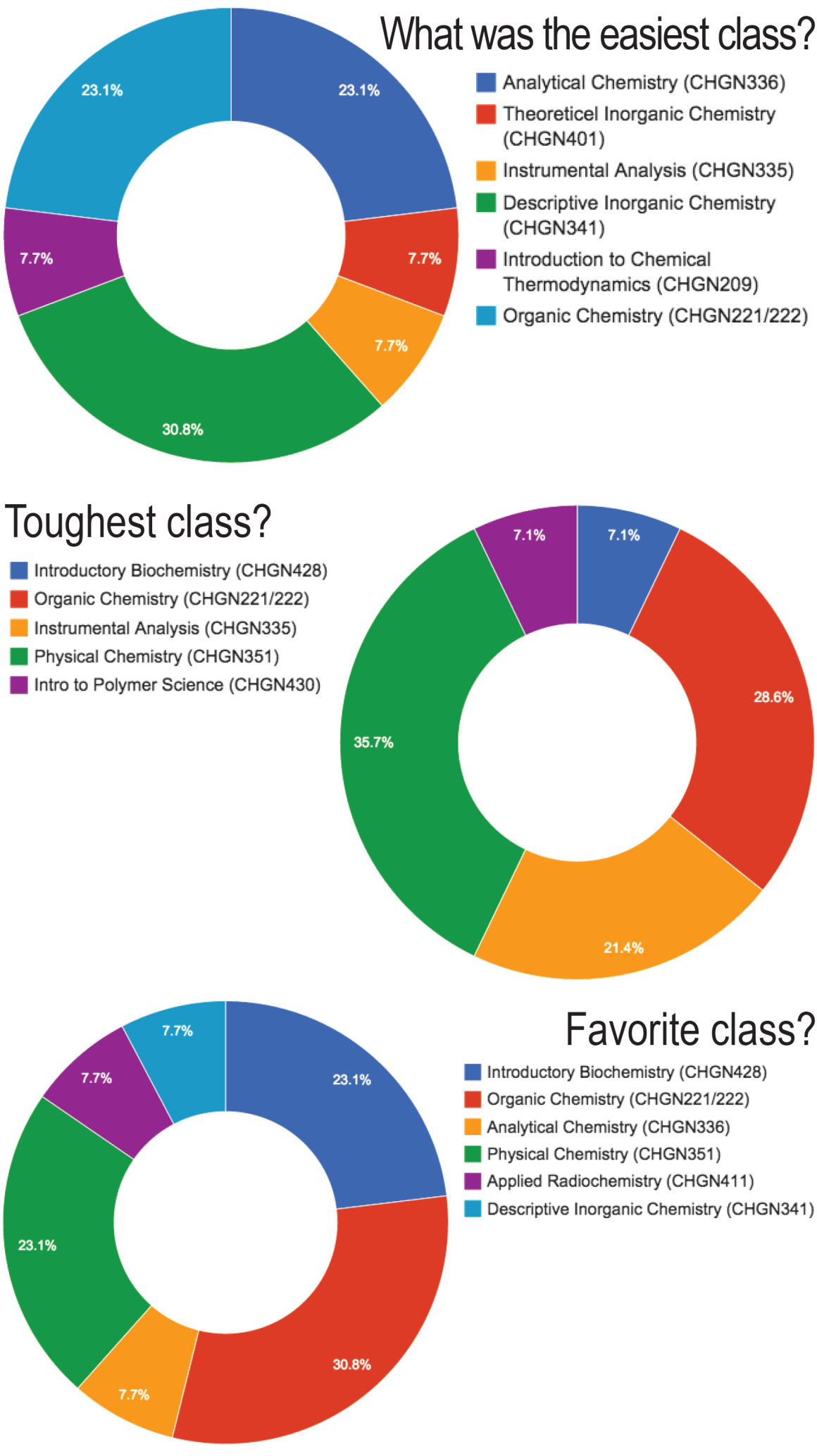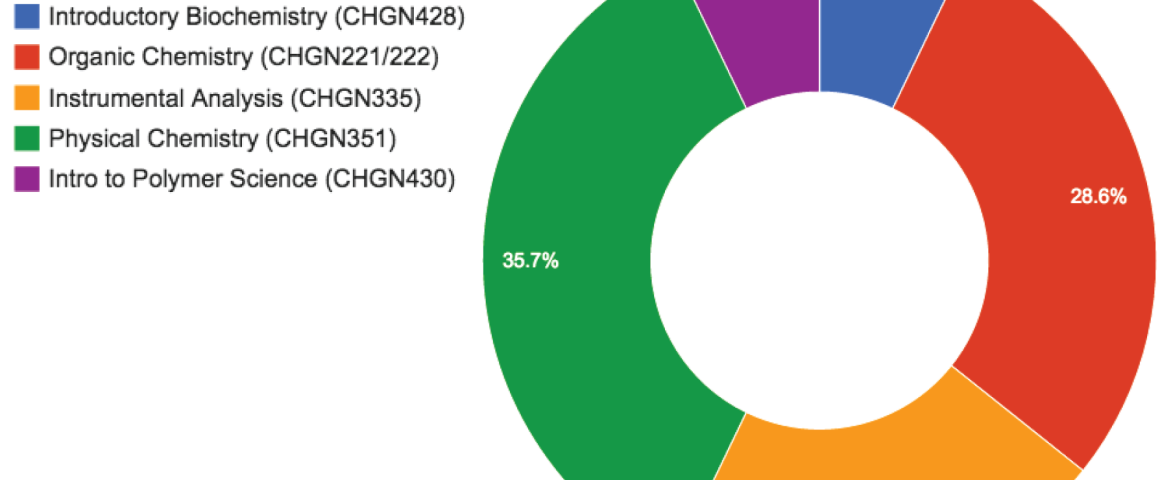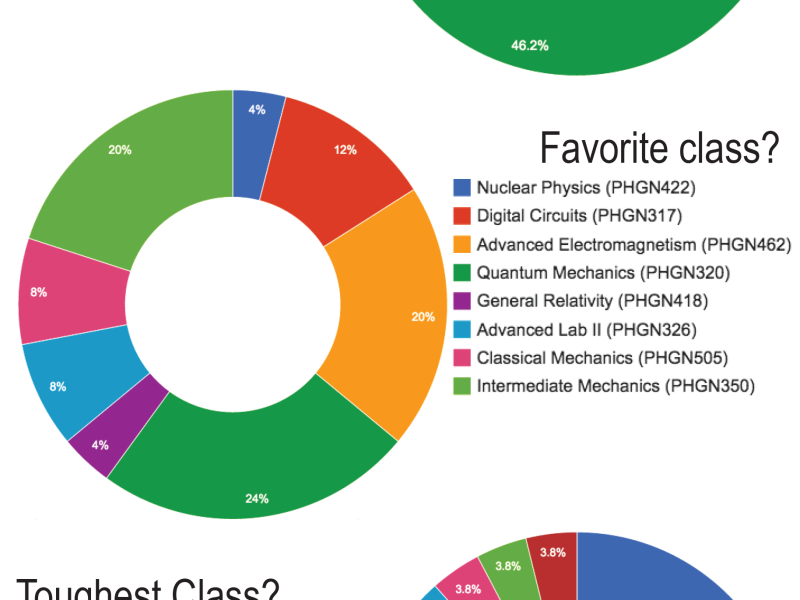 The following article is part of a recurring segment in which the Oredigger reviews a department on campus by interviewing the department head and surveying current seniors. To see more articles in this segment click here.
The following article is part of a recurring segment in which the Oredigger reviews a department on campus by interviewing the department head and surveying current seniors. To see more articles in this segment click here.
The Oredigger sat down with Bettina Voelker this week to discuss the state of the Chemistry and Biochemistry department for our latest segment of Department in Review. When asked what she wanted to highlight about the department, Dr. Voelker mentioned that while Chemistry and Biochemistry is a small major; that is what makes it so special. When students get to upperclassmen classes, the small class size allows the students to get to know their faculty and allows for students to get involved in the departments research labs.
She explained that students must truly be passionate about chemistry and enjoy learning about what the world is made of, if they want to pursue this degree. There are three tracks that undergraduates may take once they are a part of the department. The straight chemistry track, the environmental chemistry track, and the biochemistry track. For the latter two tracks, students take electives related to either the environmental or biological tracks of chemistry for their electives and major courses. The biochemistry track is the most popular for students who wish to go on to medical school or pharmacy school. Many graduates from the department continue on into graduate school no matter what track they chose.
Another positive trait of the Chemistry department relates to the extremely high number of females. The major is predominantly female with over 55% being of the fair sex.
The department has 24 full time faculty and 113 students, meaning the student to faculty ratio is very small at about 4.5:1. The placement rates for the Majors undergraduates are extremely high at 96% and the average starting salary is $43,991. Out of 28 graduates last year, half went on to grad school and all but one who were actively looking for a job found one. For graduate students, out of five reporting for the 2013-2014 class, all five either: found jobs, continued on to pursue a doctorate, or joined the military, and all eight doctoral degree students found work upon graduation with an average starting salary of $58,000.
When it comes to research in the department, it is one of the leaders in renewable energy research whether it is fuel cells, solar panels, or simply designing the materials that make these renewable energies work. Furthermore, while Mines does not have a specific pre-med course track, the chemistry department has more medical research going on than most students know about. For example, assistant professor Brian Trewyn is currently working on studying various forms of cancer treatment. While the above is all well to do, Dr. Voelker said the thing she is most proud about is that the faculty in the department are all extremely excited by teaching and truly enjoy it.





'Department in Review: Chemistry & Biochemistry' has no comments
Be the first to comment this post!